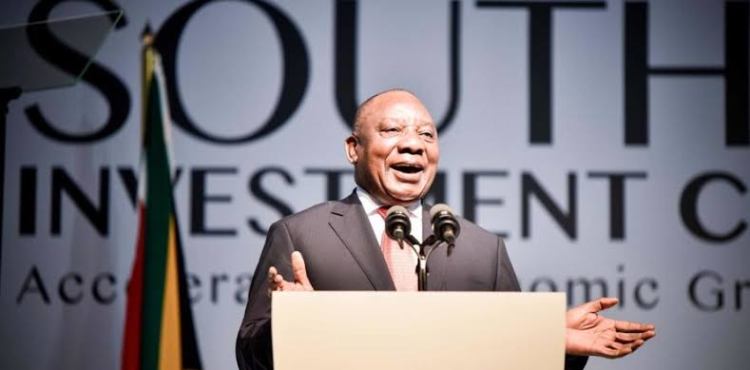President Cyril Ramaphosa announced significant reforms in key sectors to improve South Africa’s energy security, healthcare, and education systems while addressing long-standing issues of poverty and inequality. Speaking during his annual address to the National Council of Provinces (NCOP) in Parliament, Cape Town, the President emphasized the government’s commitment to structural changes that will drive economic growth and social progress.
President Ramaphosa detailed the government’s ambitious reforms in the electricity sector to establish a competitive market, improve energy security, and reduce the cost of electricity.
“We have embarked on far-reaching reforms of the electricity sector that will establish a competitive electricity market. This will improve energy security and lower the cost of electricity,” he said.
Acknowledging the challenges of over a decade of load shedding, the President cited mismanagement and the financial burden of building new generating capacity as contributing factors to the energy crisis. He noted that Eskom’s recent application to the National Energy Regulator of South Africa (NERSA) for tariff increases risks exacerbating financial strain on consumers.
“It is vital that we settle on a tariff path that enables Eskom to achieve financial sustainability while not placing an undue burden on consumers of electricity,” he said.
He also reaffirmed the government’s commitment to renewable energy projects and partnerships with independent power producers to diversify the energy mix.
Advancing Healthcare Access
On healthcare, the President reiterated the importance of primary healthcare as a cornerstone of South Africa’s effort to combat poverty and improve the nation’s well-being.
“A healthier nation is a more productive nation. As government, we have prioritised the strengthening of primary healthcare,” Ramaphosa stated.
He highlighted ongoing initiatives to implement the National Health Insurance (NHI), which aims to provide universal access to quality healthcare. Efforts include upgrading public health facilities and bolstering the training of medical professionals.
Additionally, he emphasized the need to tackle the shortages of healthcare workers, particularly in rural areas, and to ensure that modern technology is integrated into the healthcare system to improve service delivery.
Education: A Tool to End Poverty
Education was identified as the most effective instrument to break the cycle of poverty. The President celebrated achievements in expanding access to education, particularly for students from disadvantaged backgrounds.
“Almost 90 percent of all learners in the public education system attend no-fee schools,” he noted, adding that the National Student Financial Aid Scheme (NSFAS) now supports over 780,000 students annually compared to 40,000 during the early years of democracy.
The President underscored efforts to achieve universal access to early childhood development (ECD) facilities and improve foundational skills such as reading and mathematics.
“By investing in the skills and capabilities of young people, we can break the cycle of poverty handed down from one generation to the next,” Ramaphosa said.
Addressing Asset Poverty
The President highlighted asset poverty, where millions of South Africans lack land, houses, or assets that could be used as collateral to start businesses or build wealth.
“We have started to address the challenge of asset poverty through our land reform programmes and the provision of subsidised housing,” he stated.
Despite progress since 1994, he acknowledged that many beneficiaries of government housing still lack title deeds. The government is working to clear the backlog and reform the title deed system to make it more accessible and affordable. Ramaphosa also announced plans to accelerate land redistribution programs to empower historically disadvantaged communities.
Looking Ahead
President Ramaphosa concluded his address by reaffirming the government’s commitment to economic recovery and inclusive growth. He urged stakeholders to work together to ensure reforms translate into tangible improvements in the lives of ordinary South Africans.
“Our task is to ensure that these initiatives address inequality, improve service delivery, and create opportunities for all,” he said.
These bold reforms, while ambitious, signal a renewed focus on long-term structural changes to uplift the nation and address its socio-economic challenges.

